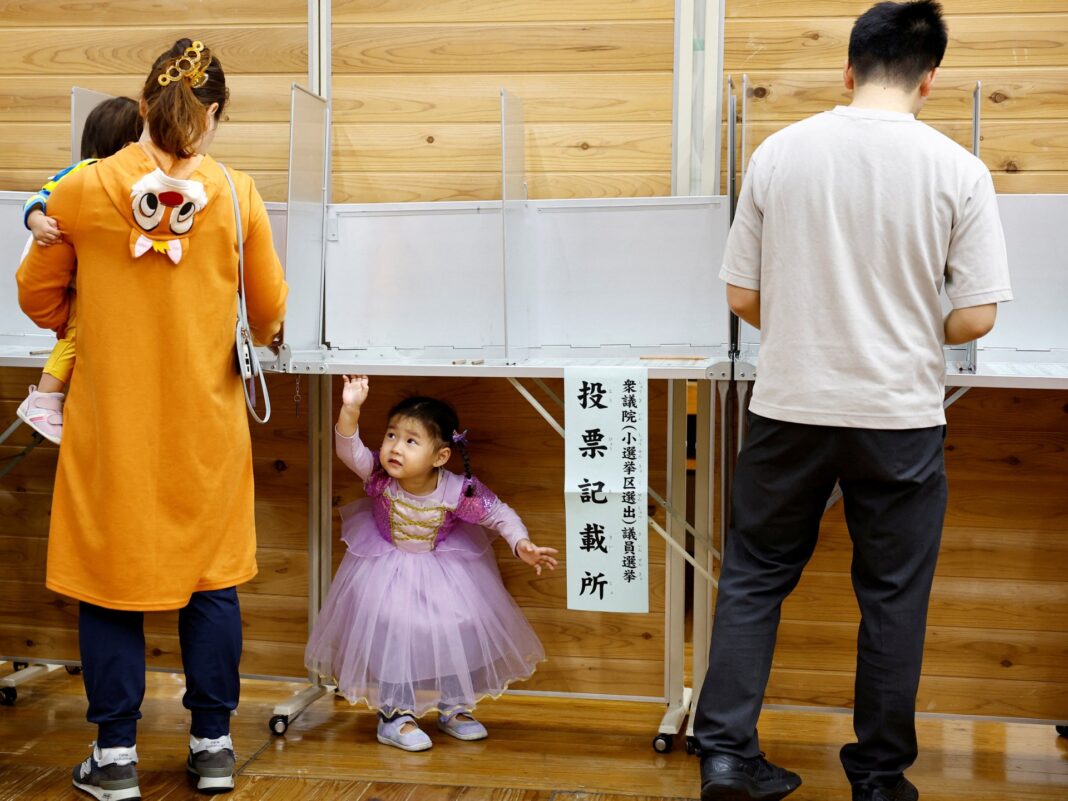While voters are weighing the ruling party’s funding scandals and the stagnant economy, they are also sceptical about the opposition’s ability and experience.
Japan is voting in its tightest election in years, with new Prime Minister Shigeru Ishiba and his Liberal Democratic Party (LDP) facing potentially their worst result since 2009 over a funding scandal and inflation.
The LDP and its longtime partner Komeito are likely to lose their comfortable majority in the lower house of parliament in Sunday’s election, opinion polls suggest.
A record 314 women among a total of 1,344 candidates are running for office. Polls close at 8pm (11:00 GMT), with early results expected within hours.
Ishiba, 67, took office on October 1, replacing his predecessor Fumio Kishida who resigned after an outcry over slush fund practices among LDP legislators. Ishiba immediately announced a snap election in hopes of shoring up more support.
But the LDP is facing potentially its worst result since 2009 – possibly leading Japan into political uncertainty, though a change of government was unexpected.
Ishiba has set a goal of retaining 233 seats for the ruling coalition between the LDP and its Buddhist-backed junior partner Komeito, a majority in the 465-member lower house, the more powerful of Japan’s two-chamber parliament.
In his final campaign speeches on Saturday, Ishiba apologised for his party’s mishandling of funds and pledged “to restart as an equal, fair, humble and honest party”. He said only the LDP’s ruling coalition can run Japan with its experience and dependable policies.
But voters in the world’s fourth-largest economy have been rankled by rising prices and the fallout from a party slush fund scandal that helped sink previous premier Fumio Kishida.
“I made my decision first and foremost by looking at their economic policies and measures to ease inflation,” Tokyo voter Yoshihiro Uchida, 48, told AFP on Sunday. “I voted for people who are likely to make our lives better.”

Japan’s biggest opposition party, the Constitutional Democratic Party of Japan (CDP), meanwhile, is expected to make significant gains. Its centrist leader, former Prime Minister Yoshihiko Noda, said Sunday’s election is a rare chance for a change of government.
Local media speculated that Ishiba could potentially even resign immediately to take responsibility, becoming Japan’s shortest-serving prime minister in the post-war period.
The current record is held by Naruhiko Higashikuni who served for 54 days – four days more than British leader Liz Truss in 2022 – just after Japan’s 1945 defeat in World War II.
“The LDP’s politics is all about quickly implementing policies for those who give them loads of cash,” 67-year-old Noda told his supporters on Saturday.
“But those in vulnerable positions… have been ignored,” he added, accusing the government of offering insufficient support for survivors of an earthquake in central Japan.

Analysts suggest Ishiba could fall short of reaching his target, though his LDP was expected to remain the top party in Japan’s parliament as voters are sceptical about the opposition’s ability and experience.
Ishiba’s party is also being tested to break the legacy of the late Premier Shinzo Abe. Abe’s policies focused on security, trade and industry but largely ignored equality and diversity, and his nearly eight-year tenure led to the corruption, experts say.
“The public’s criticisms against the slush funds scandal has intensified, and it won’t go away easily,” said Izuru Makihara, a University of Tokyo professor of politics and public policy. “There is a growing sense of fairness and people are rejecting privileges for politicians.”







